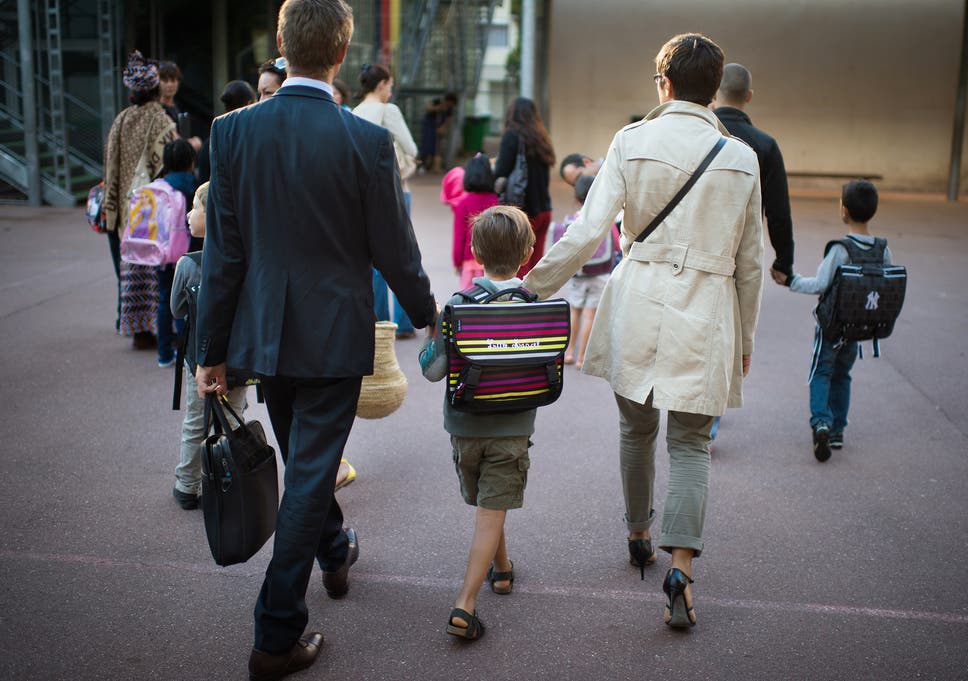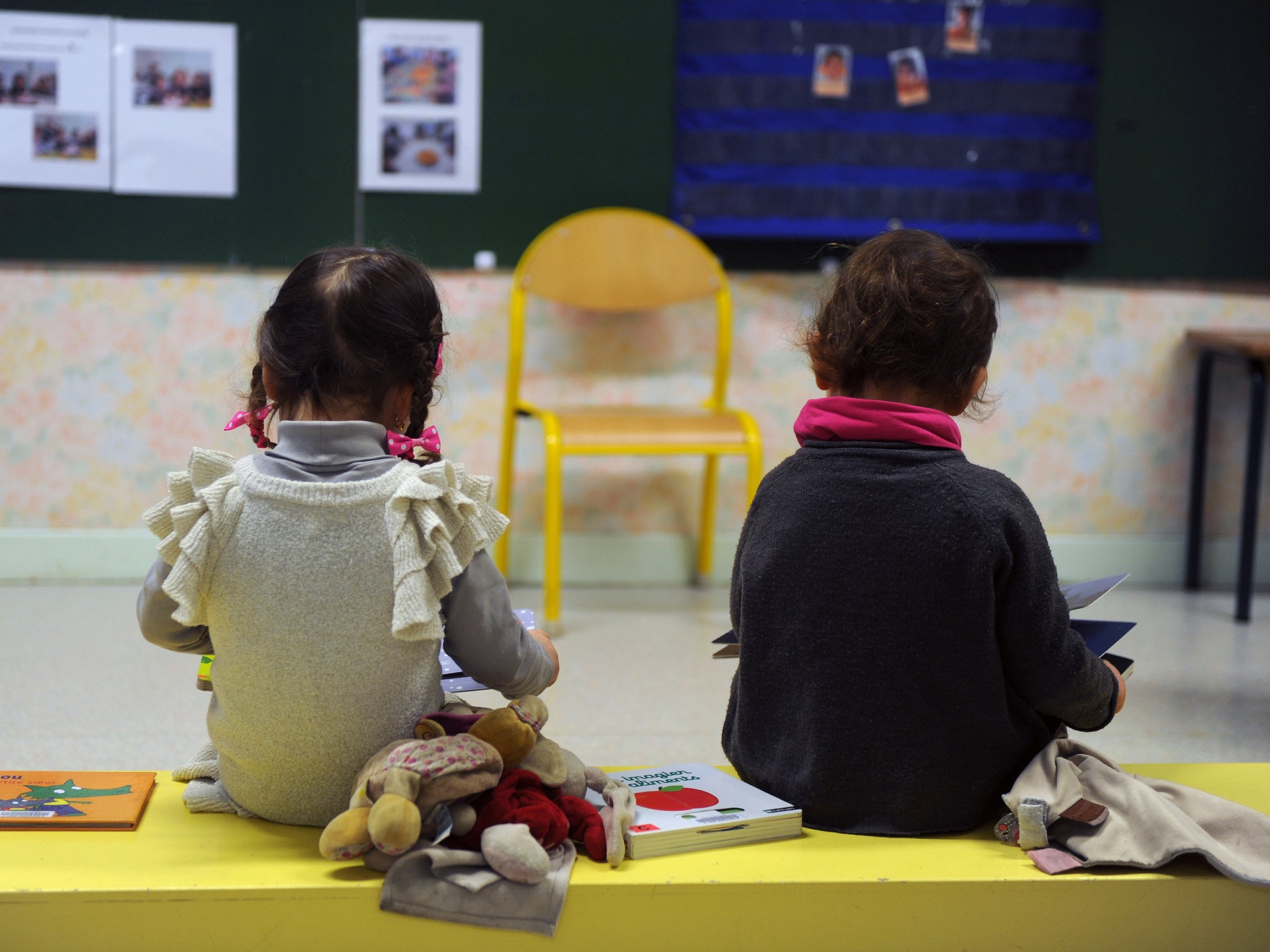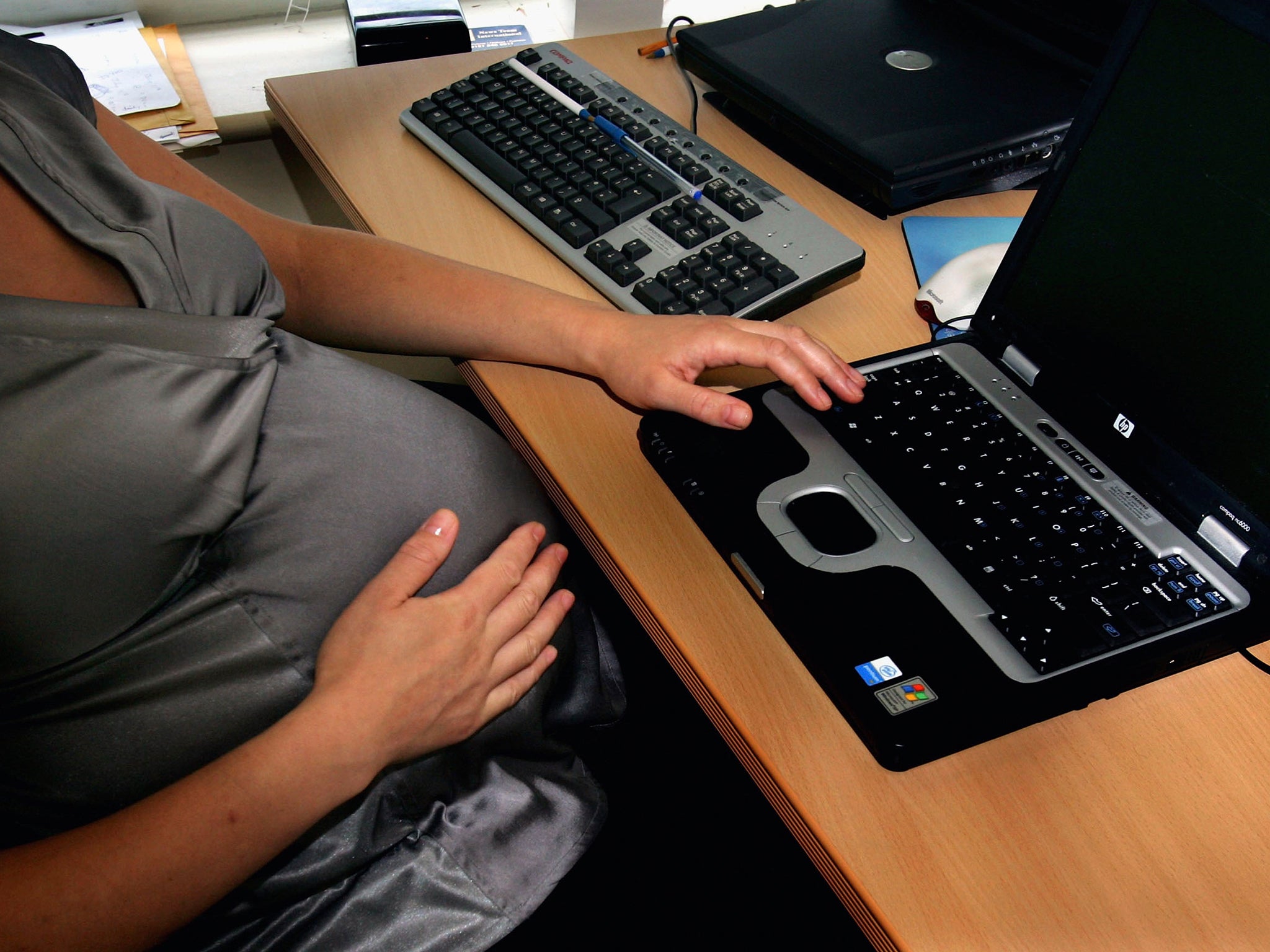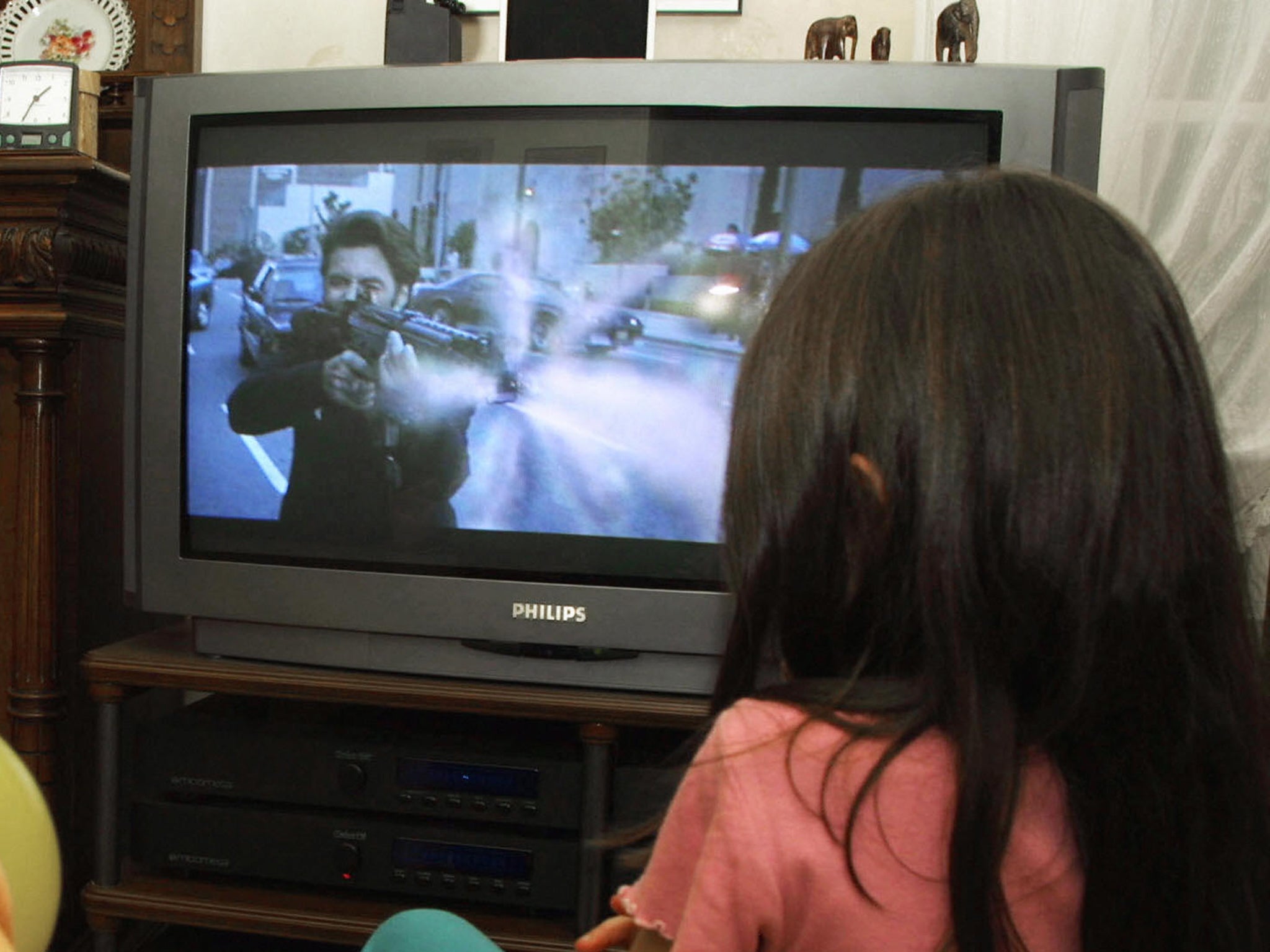pov:
25 scientific ways your childhood influences your success as an adult ...
25 scientific ways your childhood influences your success as an adult
There isn't a recipe for ensuring achievement in adulthood, but research points to several factors that can predict success

From the biological side of things to how we're nurtured, a lot of what goes on in childhood influences how we turn out as adults.
And while there isn't a set recipe for ensuring achievement and happiness in adulthood, psychology research has pointed to a handful of factors from childhood that can predict success.
Here's some of what we know about how your childhood influences your success as an adult:






We’ll tell you what’s true. You can form your own view.
From 15p €0.18 $0.18 USD 0.27 a day, more exclusives, analysis and extras.
Your social skills as a kindergartner can determine if you go to college or get a job.

Researchers from Pennsylvania State University and Duke University tracked more than 700 children from across the US between kindergarten and age 25 and found a significant correlation between their social skills as kindergartners and their success as adults two decades later.







The 20-year study showed that socially competent children who could cooperate with their peers without prompting, be helpful to others, understand their feelings, and resolve problems on their own, were far more likely to earn a college degree and have a full-time job by age 25 than those with limited social skills.
Those with limited social skills also had a higher chance of getting arrested, binge-drinking, and applying for public housing.
"This study shows that helping children develop social and emotional skills is one of the most important things we can do to prepare them for a healthy future," said Kristin Schubert, program director at the Robert Wood Johnson Foundation, which funded the research, in a release.
"From an early age, these skills can determine whether a child goes to college or prison, and whether they end up employed or addicted."
If your parents divorce when you're super-young, you'll likely have poor relationships with them in adulthood.
If your parents split up when you were between 3 and 5, you'll probably have an insecure relationship with them when you're an adult, especially in the case of fathers, according to a University of Illinois study. However, that divorce incidence doesn't predict insecure romantic relationships.
If you copycat your parents, you'll be more open-minded as an adult.
If you copied everything your parents did as a child, even if it didn't make sense, it's likely you developed a willingness to assume that actions have some "unknown" purpose. This will make you more open to sharing and transmitting culture later on in life, according to a study by researchers at the University of KwaZulu-Natal in Durban, South Africa, and the University of Queensland in Australia.
This is universally a human activity — chimpanzees are shown to only imitate actions if they're practical. "It's something that we know that other primates don’t do," said psychologist Mark Nielsen, of the University of Queensland in Australia.
If you're a girl and your mom works, you're more likely to become the boss and make more money.

According to research out of Harvard Business School, there are significant benefits for children growing up with mothers who work outside the home.
The study found daughters of working mothers went to school longer, were more likely to have a job in a supervisory role, and earned more money — 23% more compared to their peers who were raised by stay-at-home mothers.
The sons of working mothers also tended to pitch in more on household chores and childcare, the study found — they spent seven and a half more hours a week on childcare and 25 more minutes on housework.
"Role modeling is a way of signaling what's appropriate in terms of how you behave, what you do, the activities you engage in, and what you believe," the study's lead author, Harvard Business School professor Kathleen L. McGinn, told Business Insider.
"There are very few things, that we know of, that have such a clear effect on gender inequality as being raised by a working mother," she told Working Knowledge.
If you're sexually abused as a child, you're at higher risk of being obese as an adult.
Several studies have shown a correlation between sexual abuse — and other traumatic childhood experiences — and eating disorders.
For women, a 2007 study showed that childhood sexual abuse raised the risk of obesity by 27% compared with women who were never sexually abused.
For men, a 2009 study showed that experiencing sexual abuse as a child raised the risk of obesity by 66% compared with males who never experienced sexual abuse.
Trying to be 'cool' in high school could lead to problems in adulthood.

Teens who try to act older than their age to gain popularity and engage in "adolescent pseudomature behavior" are more likely to have problems with drugs and alcohol and engage in serious criminal behavior by their early 20s, according to a study published in the journal Child Development.
Adolescent pseudomature behavior describes young teens who want to look and feel mature before they actually are — they haven't reached the emotional and behavioral maturity that comes with adulthood. To look and feel mature, these teens often behave in ways they consider mature, like drinking alcohol, smoking, partying late, and having sex.
"It appears that while so-called cool teens' behavior might have been linked to early popularity, over time, these teens needed more and more extreme behaviors to try to appear cool," Joseph P. Allen, lead author and professor of psychology at the University of Virginia, said.
The higher your parents' income, the higher your SAT scores.
According to Stanford University researcher Sean Reardon, the achievement gap between high- and low-income families "is roughly 30% to 40% larger among children born in 2001 than among those born 25 years earlier."
As "Drive" author Dan Pink has noted, the higher the income for the parents, the higher the SAT scores for the kids.
"Absent comprehensive and expensive interventions, socioeconomic status is what drives much of educational attainment and performance," he wrote.
If you grow up poor, your working memory could suffer.
People who grow up in lower socioeconomic classes end up with a lower working memory — or ability to hold multiple objects in their minds — in adulthood, suggests a University of Oregon study.
If you watch lots of violent TV, you're more likely to be an aggressive grown-up.

According to a 15-year study, children model their behaviors after violent scenes where the perpetrators are rewarded for violence. For example, if a child watches a detective who's rewarded for bringing a murderer to justice after a violent clash, it will result in more pushing, grabbing, and shoving from the child — even after he or she has grown up.
Learning math early on makes you better at math and reading down the road.
A 2007 meta-analysis of 35,000 preschoolers across the US, Canada, and England found that developing math skills early can turn into a huge advantage.
"The paramount importance of early math skills — of beginning school with a knowledge of numbers, number order, and other rudimentary math concepts — is one of the puzzles coming out of the study," coauthor and Northwestern University researcher Greg Duncansaid in a press release. "Mastery of early math skills predicts not only future math achievement, it also predicts future reading achievement."
If you have druggy parents, you'll likely be a super-serious adult.
If you grew up witnessing your parents abusing drugs or alcohol, you probably ended up being the parent to your parents.
Because you skipped childhood altogether, you become super-serious and won't know how to have fun as an adult. You also tend to be overly responsible, says Portland Lifestyle Counseling.
When your mom finishes college, you're more likely to do the same.
A 2014 study led by University of Michigan psychologist Sandra Tang found that mothers who finished high school or college were more likely to raise kids that did the same.
Pulling from a group of over 14,000 children who entered kindergarten in 1998 to 2007, the study found that children born to teen moms (18 years old or younger) were less likely to finish high school or go to college than their counterparts.
Aspiration is at least partially responsible. In a 2009 longitudinal study of 856 people in semirural New York, Bowling Green State University psychologist Eric Dubow found that "parents' educational level when the child was 8 years old significantly predicted educational and occupational success for the child 40 years later."
If you were bullied as a kid, you're more likely to face hardships an adult.
A study that tracked 7,771 British children from when they were 7 to 50 years old found that people who were bullied as kids had worse relationships, increased depression, higher anxiety, lower educational attainment, and lower earnings.
In a study published recently in the JAMA Psychiatry journal, researchers at Duke University found that victims of bullying in childhood were at increased risk of anxiety disorders in adulthood, and those who were both victims and perpetrators were at increased risk of adult depression and panic disorder. Female bullies/victims were at higher risk for developing agoraphobia, while male bullies/victims were at increased risk for suicidality.
If you're allowed to watch TV as a baby, you may have suppressed communication skills.
After observing mothers and children in a study, researchers found that TV reduces parent-child communication. Even when there was speaking involved, the parents' comments were typically unrelated to what their children said.
The result is that it created an "unproductive exchange that could hinder children's opportunity for learning," the authors said.
A less-stressed parent helps you keep your cool.
According to new research cited by Brigid Schulte at The Washington Post, the number of hours that moms spend with kids between ages 3 and 11 does little to predict the child's behavior, well-being, or achievement.
What's more, the "intensive mothering" or "helicopter parenting" approach can backfire.
"Mothers' stress, especially when mothers are stressed because of the juggling with work and trying to find time with kids, that may actually be affecting their kids poorly," study coauthor and Bowling Green State University sociologist Kei Nomaguchi told The Post.
Emotional contagion — or the psychological phenomenon where people "catch" feelings from one another like they would a cold — helps explain why. The research shows that if your friend is happy, that brightness will infect you; if she's sad, that gloominess will transfer as well. So if a parent is exhausted or frustrated, that emotional state could transfer to the kids.
If you're spanked as a child, you may be a sneaky adult.
In the book "Drive," author Daniel Pink explains that trying to influence a child's behavior by offering rewards or punishment does not result in the desired behavior. Instead, children will only work harder to avoid getting caught the next time.
The conclusion is, if you were spanked often as a child, you'll most likely resort to misbehaving even more, but you'll learn how to do it without getting caught.
Eventually, you'll become a very sneaky adult.
If your parents don't let you make decisions, you might be codependent as an adult.
If you had a helicopter parent who didn't allow you to dress yourself or choose your own playmates and food, you may end up as a codependent adult, says mental-health counselor Laura JJ Dessauer.
As you get older, this means that you'll seek out relationships in which your partner has all the power and control.
Your parents' expectations can help guide you to college.
Using data from a national survey of 6,600 children born in 2001, University of California at Los Angeles professor Neal Halfon and his colleagues discovered that the expectations parents hold for their kids have a huge effect on attainment.
"Parents who saw college in their child's future seemed to manage their child toward that goal irrespective of their income and other assets," he said.
The finding came out in standardized tests: Of the kids who did poorly, only 57% were expected to attend college by their parents. And of the kids who did well, 97% were expected to go to college.
This falls in line with another psych finding: the Pygmalion effect, which states "that what one person expects of another can come to serve as a self-fulfilling prophecy."
In the case of kids, they live up to their parents' expectations.
If you're abused as a child, your memory and emotional control could suffer as an adult.
Neuroscientific research shows that people who experienced childhood abuse have worse memories and less control over their emotions.
According to a study out of Harvard, published in the journal Proceedings of the National Academy of Sciences, being sexually or emotionally abused as a child can stunt the development of three key areas of the hippocampus that control memory and the regulation of emotion.
Children who have good self-control early on are more likely to be well-functioning adults.
Children who have good self-control early in life are more likely to grow into healthy, financially secure, and trouble-free adults than those with poor self-discipline, according to a 32-year study published in the Proceedings of the National Academy of Sciences.
"Parents should forget about their children's self-esteem and concentrate in instilling self-control," self-control expert Roy Baumeister, a professor of psychology at Florida State University in Tallahassee, told WebMD.
When your parents pay attention to you, you have healthier relationships and greater academic success in your 30s.
A 2014 study of 243 people born into poverty found that children who received "sensitive caregiving" in their first three years not only did better in academic tests in childhood, but had healthier relationships and greater academic attainment in their 30s.
As reported on PsyBlog, parents who are sensitive caregivers "respond to their child's signals promptly and appropriately" and "provide a secure base" for children to explore the world.
"This suggests that investments in early parent-child relationships may result in long-term returns that accumulate across individuals' lives," coauthor and University of Minnesota psychologist Lee Raby said in an interview.
When mothers take maternity leave their children are more likely to be successful as adults.
Research out of The Institute for the Study of Labor (IZA) in Bonn indicates higher education, IQ, and income levels in adulthood for children of mothers who used maternity leave — the biggest effect comes for children from lower-educated households. The researchers cited this as a significant discussion for US policymakers to have, as paid maternity leave could reduce the existing gap in education and income in the US.
If you're close with your dad as a child, you're more likely to develop better interpersonal relationships down the road.

According to a study out of the University of Haifa's School of Social Work, having an emotional connection with your father as a child suggests you're more likely to enter a healthy, physically intimate relationship with a partner later in life.
"The research found a definitive connection between the quality of the father-child relationship and interpersonal relationships later in life," said lead researcher Dr. Nurit Nahmani.
If you experience maltreatment as a child, you're twice as likely to be depressed now.
A King's College London study of 26,000 people found that if you experienced various forms of maltreatment, you're 2.27 times more likely to have recurrent episodes of depression.
The maltreatments, per a Guardian report:
• rejecting interaction from a mother
• harsh discipline reported by a parent
• unstable primary caregiver arrangement throughout childhood
• self-reports of harsh physical or sexual maltreatment
That must play in a role in the startling facts about depression in the US: One in 10 Americans have it.
Getting an "A" for effort can springboard resilience.
Where kids think success comes from also predicts their attainment.
Over decades, Stanford University psychologist Carol Dweck has discovered that children (and adults) think about success in one of two ways. Over at the always fantastic Brain Pickings, Maria Popova says they go a little something like this:
A "fixed mindset" assumes that our character, intelligence, and creative ability are static givens that we can't change in any meaningful way, and success is the affirmation of that inherent intelligence, an assessment of how those givens measure up against an equally fixed standard; striving for success and avoiding failure at all costs become a way of maintaining the sense of being smart or skilled.
A "growth mindset," on the other hand, thrives on challenge and sees failure not as evidence of un-intelligence but as a heartening springboard for growth and for stretching our existing abilities.
At the core is a distinction in the way you assume your will affects your ability, and it has a powerful effect on kids. If kids are told that they aced a test because of their innate intelligence, that creates a "fixed" mindset. If they succeeded because of effort, that teaches a "growth" mindset.